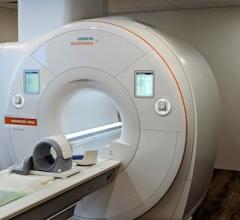December 2, 2015 — Researchers have developed software for the Microsoft Kinect gaming console that measures body part thickness and checks for motion, positioning and beam adjustment immediately before X-ray imaging, according to a feasibility study presented at the 2015 meeting of the Radiological Society of North America (RSNA).
Watch a short video to see how the system works
"Patients, technologists and radiologists want the best quality X-rays at the lowest dose possible without repeating images," said Steven Don, M.D., associate professor of radiology at Mallinckrodt Institute of Radiology, Washington University School of Medicine in St. Louis, Mo. "This technology is a tool to help achieve that goal. Patients will benefit from reduced radiation exposure and higher quality images to ensure diagnostic accuracy."
Microsoft Kinect was originally developed as a motion sensor and facial and voice recognition device for the Xbox gaming system that enabled players to play games without a standard controller. Subsequently, the technology has been adapted for select non-gaming applications.
For this feasibility study, Don and colleagues combined the technology of the Microsoft Kinect 1.0 with proprietary software to address common problems that affect imaging results, including body-part thickness and motion.
"To optimize radiation exposure and image quality, X-ray technique should be set based on body-part thickness," Don explained. "Use of traditional calipers is time-consuming, intrusive, and sometimes frightening to young children. Using Microsoft Kinect with this software, we can measure body-part thickness automatically without patient contact."
Additionally, the software provides valuable information on motion and positioning with respect to automatic exposure control (AEC) sensors, image receptor and body part within the X-ray field. Through real-time monitoring, the software alerts the user when any of these factors do not match the requisition--such as the wrong body part--or could compromise image quality. This fail-safe helps to reduce or eliminate common causes of unnecessary repeat image acquisition.
"This device can help technologists and radiologists achieve the radiation dose goal of ALARA, As Low As Reasonably Achievable, while enhancing the quality and consistency of X-ray images," Don said.
He noted that the radiology research community is constantly improving imaging for patients to ensure accurate diagnoses while striving to reduce dose. "In the future, we hope to see this device, and other tools like it, installed on radiography equipment to aid technologists by identifying potential problems before they occur," he said.
Co-authors on the study are Robert MacDougall, M.Sc., and William Clayton.
For more information: RSNA.org


 February 16, 2026
February 16, 2026 









